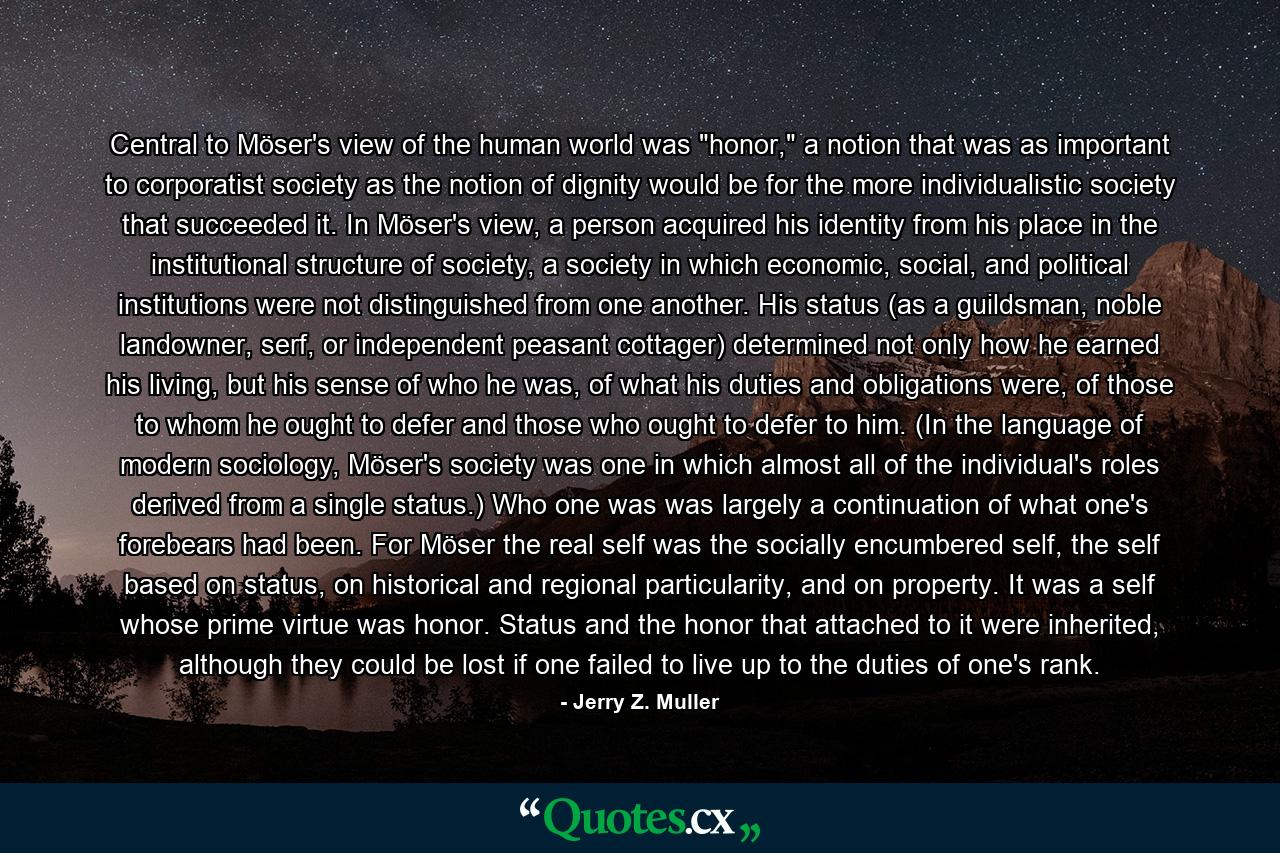Central to Möser’s view of the human world was “honor,” a notion that was as important to corporatist society as the notion of dignity would be for the more individualistic society that succeeded it. In Möser’s view, a person acquired his identity from his place in the institutional structure of society, a society in which economic, social, and political institutions were not distinguished from one another. His status (as a guildsman, noble landowner, serf, or independent peasant cottager) determined not only how he earned his living, but his sense of who he was, of what his duties and obligations were, of those to whom he ought to defer and those who ought to defer to him. (In the language of modern sociology, Möser’s society was one in which almost all of the individual’s roles derived from a single status.) Who one was was largely a continuation of what one’s forebears had been. For Möser the real self was the socially encumbered self, the self based on status, on historical and regional particularity, and on property. It was a self whose prime virtue was honor. Status and the honor that attached to it were inherited, although they could be lost if one failed to live up to the duties of one’s rank.
